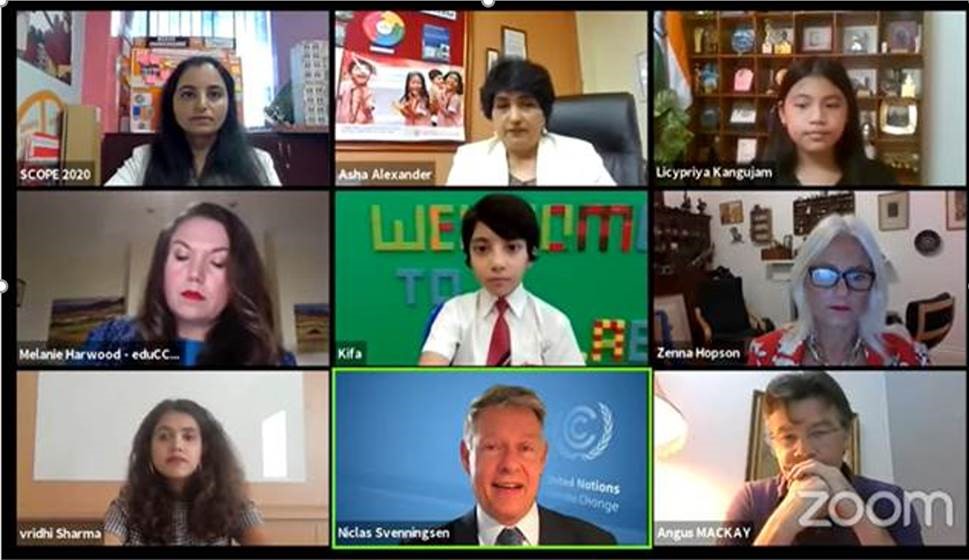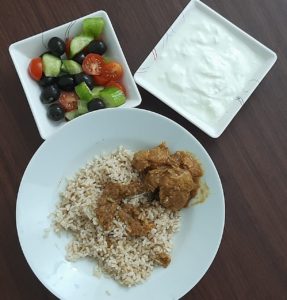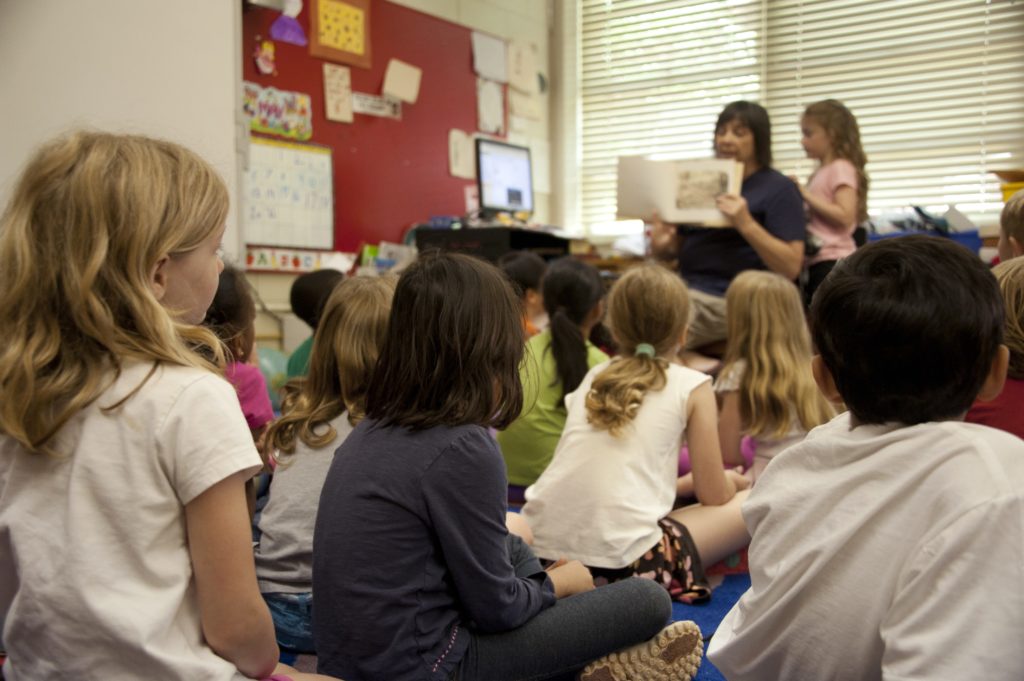After conducting the World’s First School Conference of Parties (SCOPE-2020) in Dubai it was apparent that there was an appetite worldwide for embedding climate literacy in schools. However, teachers are often not familiar with how to get started and there is still a need to share best practice. There is a need to get quality content, adequate resources and at the same time train teachers to be able to deliver this curriculum. As such, GEMS Education has embarked on an ambitious programme of effecting this change worldwide.

Opening plenary at SCOPE 2020 lead by Ms Asha Alexander. Photo: Asha Alexander
The UN CC: Learn courses have been the bedrock on which we built the teacher training at our GEMS schools and while the interest levels were high, the ability to weave it into the existing curriculum was proving to be a challenge across multiple curricula. It struck me that there must be a simpler way to get started.
Having identified the hook, I chose the Sustainable Diet e-course from several that the UN CC: Learn boasts of and requested all the staff members at GEMS The Kindergarten Starters to complete the course. Three hundred plus staff members completed the course in the space of a week and we then engaged Grades 3-5 students to undertake the course. The e-course offered relevant and current information along with possible solutions for practicing a sustainable diet. It has helped students to develop an understanding of sustainability as a whole and its connection to all aspects of environmental issues like water shortage and pollution, so they were able to deal with the complexity of the subject.

Diet followed by students and parents. Photo: Asha Alexander
Greatly encouraged we reached out to all 37 participating schools in SCOPE-2020 to be a part of this journey. With that aim in mind, we have at present connected with 15 schools from 9 countries including Oman, UAE, India, Bangladesh, Costa Rica, Uganda, Kenya, USA and Australia who will also undertake to do the course and then work with students to practice a sustainable diet by monitoring the carbon footprint of what they consume.
We feel we will have made impact if students and parents truly understand the issues from a personal viewpoint and are able to look for possible solutions within their school and local communities. Our goal is to systematically implement education for sustainability through the development of evaluation. Our vision is to have moved the needle to lower carbon footprint across the world by encouraging schools and their local communities to adopt a sustainable diet. I have learned that small but consistent steps are a great way to get started. Our children will take ownership of their own learning. All we need is to point them in the right direction.

